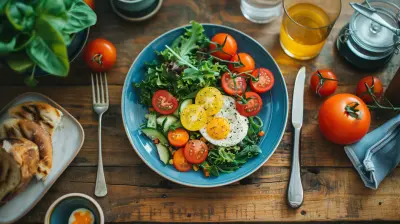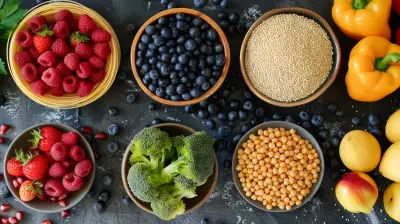Can Fiber Help You Keep Your Muscles Lean? Here's How
10 August 2025
When we think about building lean muscle, protein often takes center stage. But have you ever considered fiber’s role in keeping your muscles strong, lean, and healthy? Most people associate fiber with digestion and gut health, yet its benefits extend far beyond that.
Fiber isn’t just about keeping you “regular.” It plays a significant role in weight management, preventing muscle loss, and optimizing your body’s ability to absorb essential nutrients. If you’re aiming for a lean, toned physique, fiber might be the missing piece in your diet.
Let’s dive into how fiber helps maintain lean muscle and why it deserves a spot on your plate.
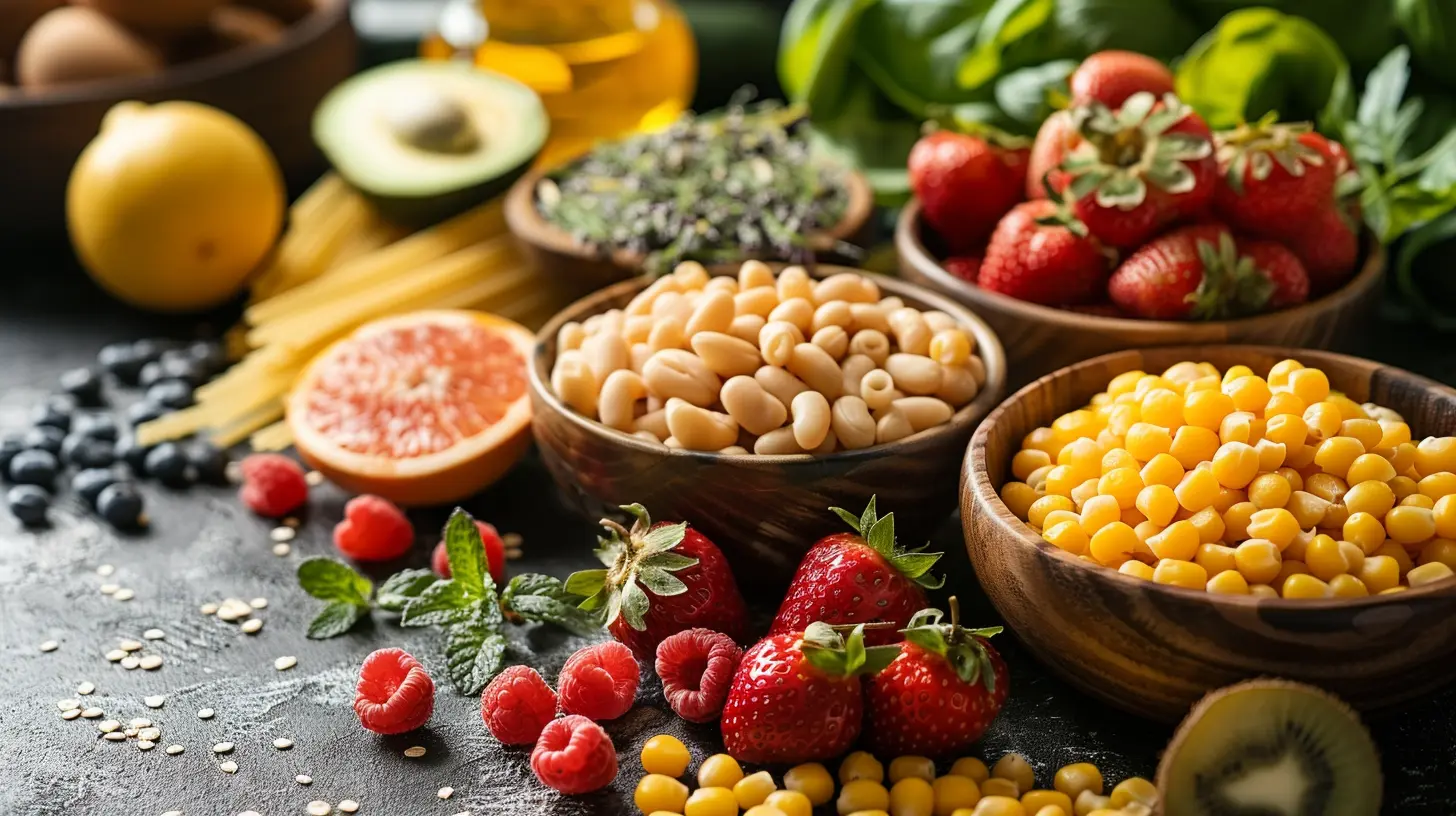
Understanding Fiber: More Than Just a Digestion Aid
What Is Fiber?
Dietary fiber is a type of carbohydrate that your body can’t digest. Unlike other carbs, fiber doesn’t break down into sugar molecules. Instead, it moves through your digestive system, providing essential benefits along the way.Fiber comes in two forms:
1. Soluble Fiber – Dissolves in water and creates a gel-like substance, helping to slow digestion and stabilize blood sugar. Found in oats, beans, apples, and flaxseeds.
2. Insoluble Fiber – Adds bulk to stool and promotes healthy digestion. Found in whole grains, nuts, and vegetables.
Both types are crucial for overall health—especially when it comes to muscle preservation and fat loss. 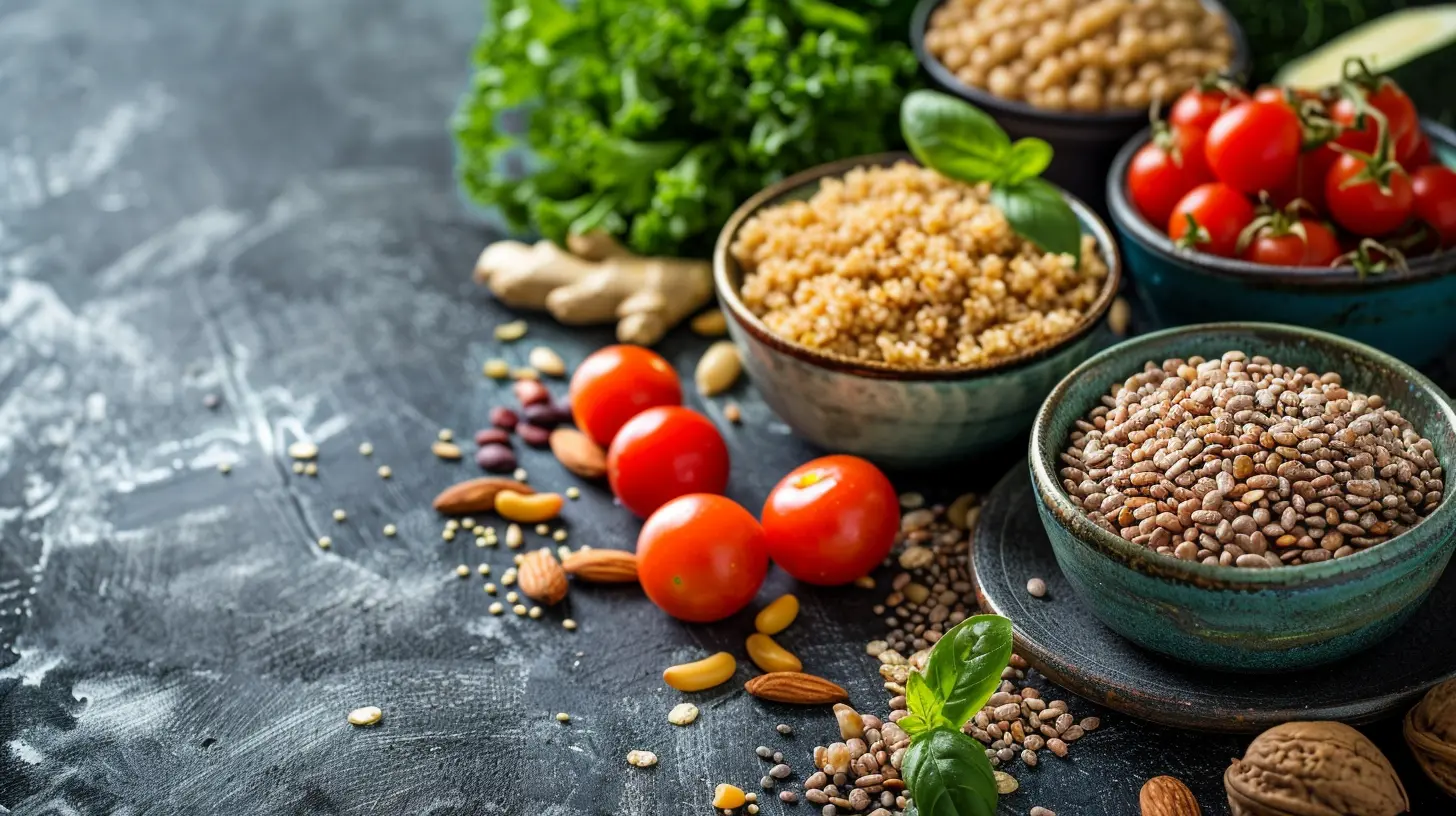
How Fiber Supports Lean Muscle
1. Aids in Fat Loss Without Sacrificing Muscle
Losing fat while preserving muscle is the ultimate goal for a lean, toned look. Fiber plays a crucial role in this process by increasing satiety (fullness) and preventing overeating.When you consume fiber-rich foods, they slow down digestion and keep you feeling full longer. This helps control calorie intake without resorting to extreme dieting, which can lead to unwanted muscle loss.
🔹 Example: Eating fiber-rich vegetables like broccoli or leafy greens alongside your protein can help you stay fuller for longer and maintain lean muscle while shedding fat.
2. Regulates Blood Sugar Levels
Blood sugar fluctuations can lead to energy crashes and cravings, making it harder to stick to a healthy diet. Spikes in blood sugar can also contribute to fat storage, while crashes may lead to muscle breakdown.Fiber slows down the absorption of sugar into the bloodstream, helping to maintain stable energy levels throughout the day. Keeping your blood sugar in check ensures that your muscles receive a steady supply of nutrients to stay strong and lean.
🔹 Pro Tip: Pair high-fiber foods like sweet potatoes or quinoa with protein to sustain energy and muscle recovery after workouts.
3. Promotes Gut Health for Better Nutrient Absorption
A strong gut equals a strong body. The beneficial bacteria in your gut thrive on fiber, fermenting it into short-chain fatty acids, which improve overall health and digestion.A healthy gut microbiome enhances nutrient absorption, ensuring your body gets all the vitamins, minerals, and amino acids needed for muscle growth and recovery.
🔹 Best Fiber-Rich Foods for Gut Health:
- Asparagus
- Garlic
- Bananas
- Lentils
- Chia seeds
4. Reduces Inflammation and Supports Recovery
Intense workouts put stress on your muscles, often leading to inflammation. While some inflammation is necessary for growth and repair, chronic inflammation can slow recovery and hinder muscle definition.Fiber has powerful anti-inflammatory properties, helping to reduce oxidative stress and speed up recovery. This allows you to train harder, recover faster, and maintain a lean physique.
📌 Best Anti-Inflammatory Fiber Sources: Berries, turmeric, avocados, and whole grains. 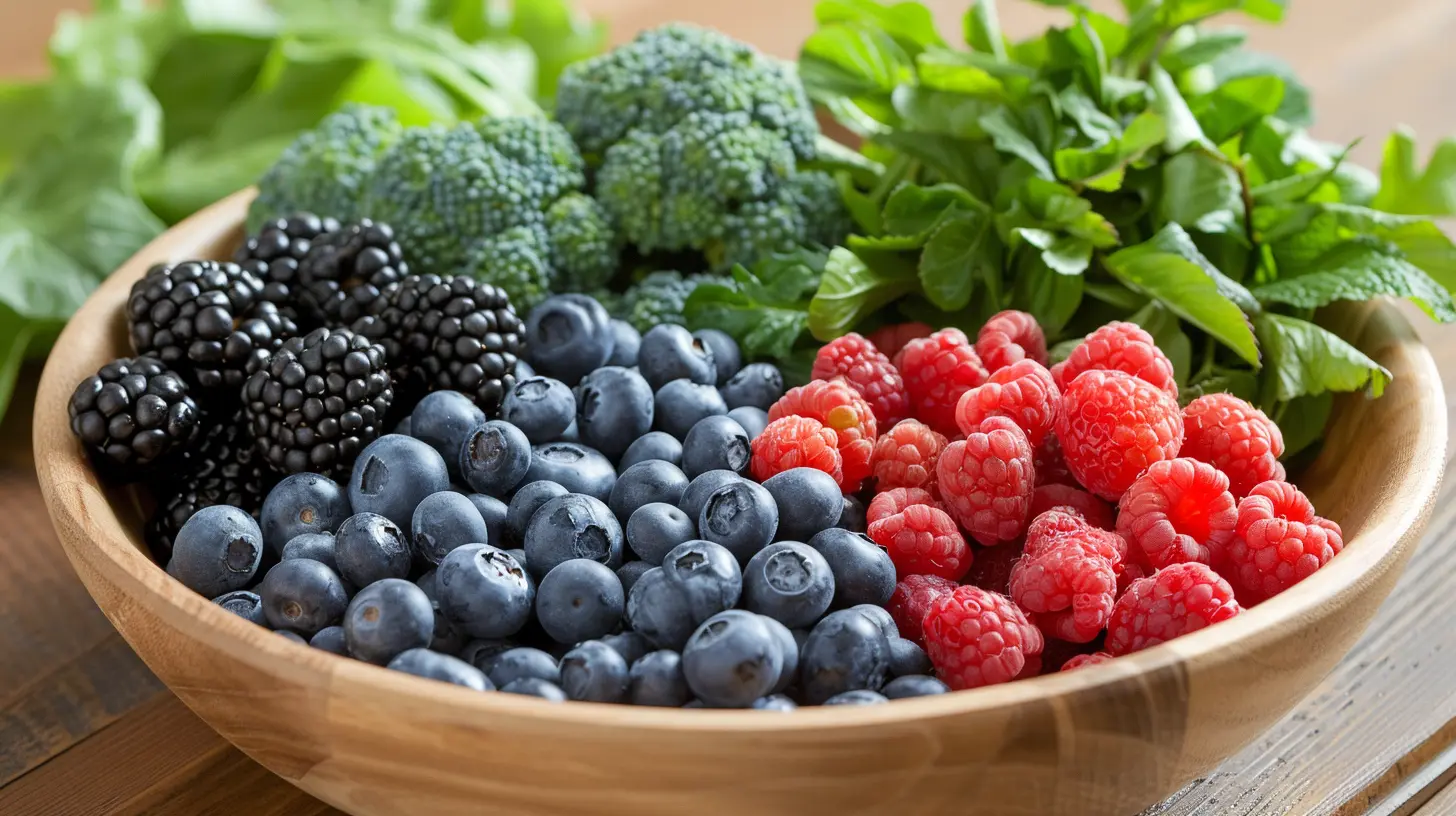
The Best High-Fiber Foods to Keep Your Muscles Lean
Not all fiber is created equal! If you're aiming to preserve lean muscle while optimizing performance, focus on whole, nutrient-dense fiber sources.Top 10 Muscle-Friendly Fiber Foods
1. Oats – Packed with soluble fiber to stabilize blood sugar and provide long-lasting energy.2. Quinoa – A complete protein with fiber to support digestion and muscle maintenance.
3. Chia Seeds – Loaded with omega-3s and fiber to reduce inflammation.
4. Legumes (Lentils, Chickpeas, Black Beans) – Excellent plant-based protein and fiber combo.
5. Leafy Greens (Spinach, Kale, Swiss Chard) – Rich in fiber, antioxidants, and essential vitamins.
6. Sweet Potatoes – Offers complex carbs and fiber for sustained energy.
7. Berries (Blueberries, Raspberries, Strawberries) – High in fiber and antioxidants to fight muscle inflammation.
8. Almonds & Walnuts – Nutrient-dense sources of healthy fats and fiber.
9. Flaxseeds – Supports digestion while providing essential fatty acids.
10. Avocados – A fiber-rich superfood that also provides healthy fats for recovery.
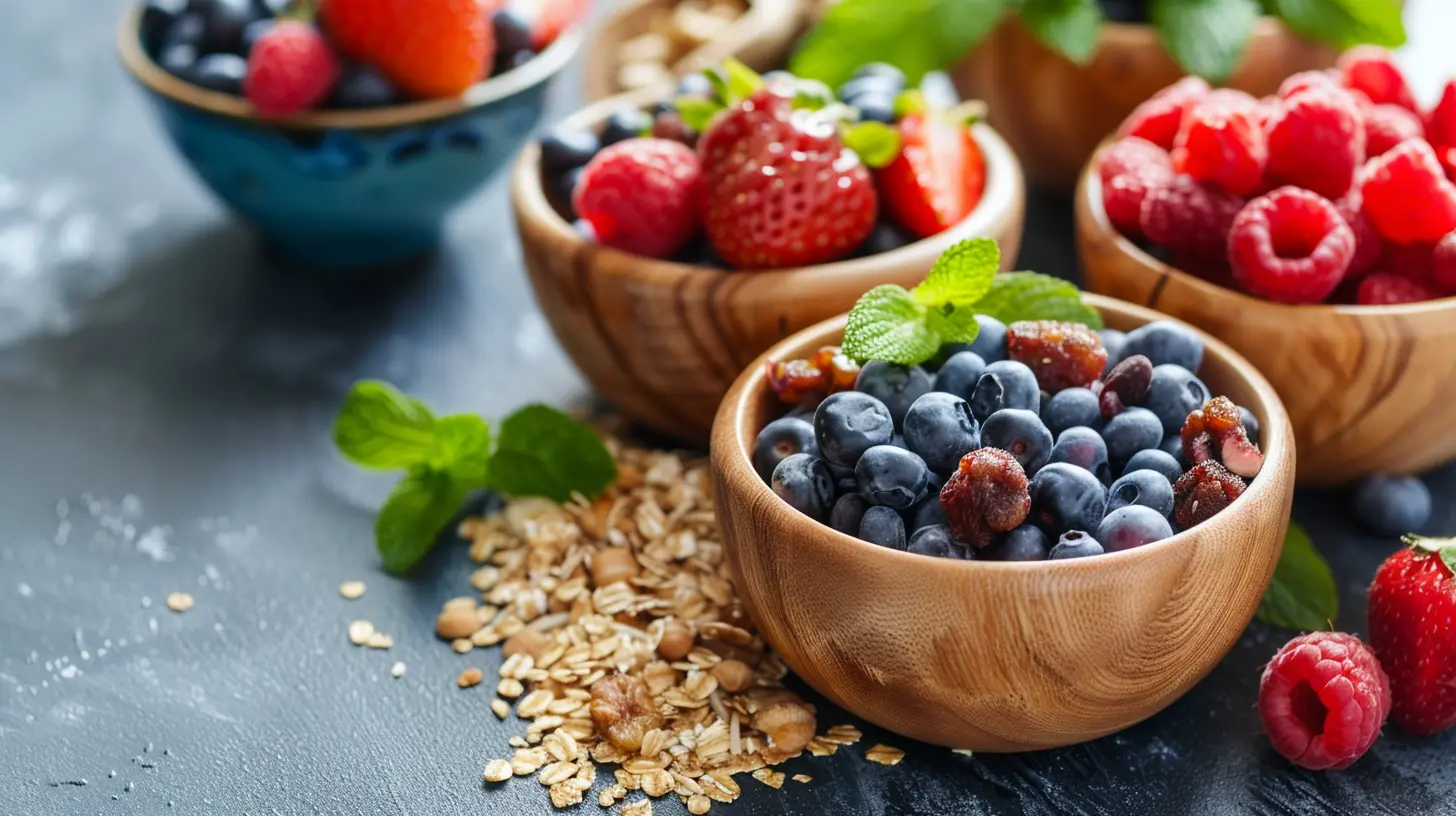
How to Increase Your Fiber Intake Without Bloated Discomfort
One common mistake people make is drastically increasing fiber intake overnight. This can lead to bloating, gas, and digestive discomfort. Here’s how to do it the right way:✔ Start Slow – Gradually add fiber-rich foods to your meals over a few weeks.
✔ Drink Plenty of Water – Fiber absorbs water, so staying hydrated helps prevent bloating.
✔ Balance Soluble and Insoluble Fiber – Aim for a mix of both for optimal digestion.
✔ Eat Whole Foods Instead of Processed Fiber Supplements – Natural foods provide additional nutrients.
Final Thoughts
While protein may be the star of muscle-building, fiber is the unsung hero that helps keep your muscles lean and defined. From controlling blood sugar and preventing muscle loss to optimizing digestion and reducing inflammation, fiber plays a vital role in body composition.If you’re serious about maintaining a strong and lean physique, fiber-rich foods should be a staple in your diet. So next time you're planning your meals, remember: protein builds muscle, but fiber helps keep it lean!
all images in this post were generated using AI tools
Category:
Fiber Rich DietAuthor:

Holly Ellison
Discussion
rate this article
1 comments
Kael Hensley
This article raises an intriguing question! I’m curious about the connection between fiber intake and muscle health. Can dietary choices really influence muscle composition? I can’t wait to explore more on this topic!
September 7, 2025 at 4:20 AM

Holly Ellison
Thank you for your interest! Yes, dietary choices, including fiber intake, can play a significant role in muscle health and composition. Stay tuned for more insights!

